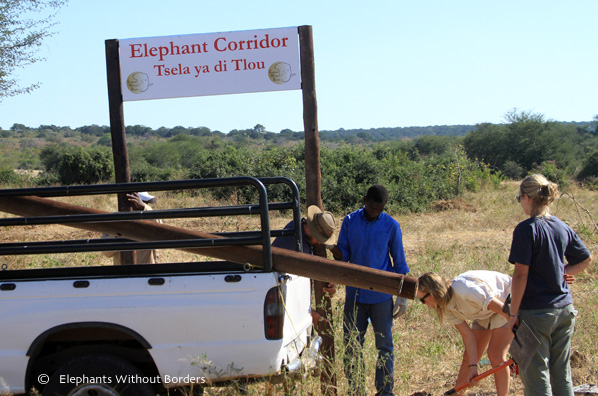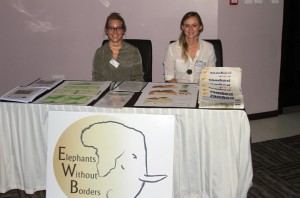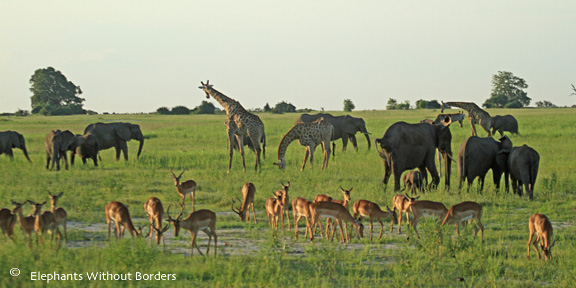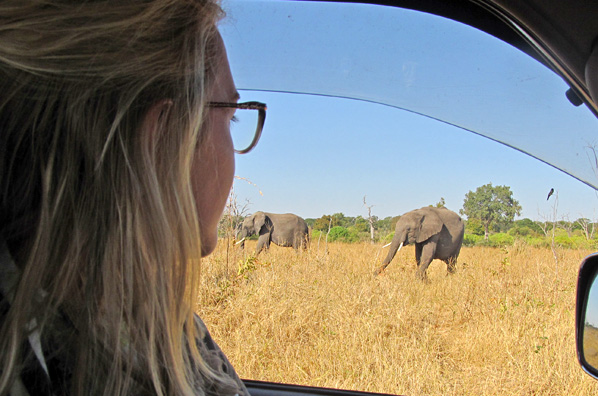Jen’s Experience w EWB
Jennifer Halstead spent the last month volunteering as a research assistant to the “human and elephant co-existant” project, here’s what she had to say about her first experiences in Botswana and with EWB:
Botswana is a lovely sight from the air, but I am sad to leave it behind. My month here in Kasane has flown by, I have seen and experienced so much in such a short time.
Thanks to Elephants Without Borders, I was given the opportunity to assist in elephant research under the dutiful care of pHd candidate Tempe Adams. I started my month with no experience and very little knowledge of the status quo of the elephant population in northern Botswana. Now, having worked so closely with Tempe on her project “How can humans and elephants co-exist?” I can safely say that the elephants are in good hands!
The project that I assisted with during my month in Kasane is focused on developing an understanding of wildlife movements in urban areas. It aims to assist in the co-operation or co-existence of elephants, as well as other wildlife, in human inhabited areas, particularly Kasane and Kasangula towns. I have had the opportunity to review camera data which provides photographic evidence of the use of both government acknowledged wildlife corridors as well as less obvious thoroughfares frequented by wildlife to access the heavily populated Chobe riverfront. It was always a thrill to sort through the photos, constantly logging the wide variety of species that would frequently appear – from elephant, to buffalo to a rare and exciting Klipspringer sighting!
But it wasn’t all data data data. I was lucky enough to attend a presentation and workshop in Gaborone, given by Elephants Without Borders with support given by Forest Conservation Botswana, where I learnt very quickly about the another side of EWB’s research world – where they presented their findings to relevant stakeholders in government and various organizations in hopes for plans of action to come to fruition.
I believe when it comes to conservation, Botswana will bare the fruit of Elephants Without Borders’ hard labour, and as a result the country will continue to reap the rewards of the tourism industry, while true wildlife will remain as abundant in the future as it is here today.
And abundant it is. You need only go as far as the Chobe riverfront to see herds of elephants congregating along the waters edge, drinking, swimming or playing in the mud. Even after a month of Kasane life, it is still an exhilarating feeling driving by a herd of ele’s grazing only metres from the roadside.
I am so grateful to have had the opportunity to experience life with these gentle giants. The results of Tempe’s work will shed light on an area of conservation that is of extreme importance in a place where humans and elephants need to maintain a peaceful co-existence. And as Elephants Without Borders expands their field of focus to include large herbivores, as well as elephant research, Botswana has an even greater chance of maintaining the populations of wildlife they are famous for.
Jennifer Halstead, UNSW Bachelor of Environmental Science and Bachelor of Arts Undergraduate student
Read more about EWB’s conservation research projects: http://www.elephantswithoutborders.org/
To help support EWB: http://www.elephantswithoutborders.org/donate.php
Follow us on Facebook: https://www.facebook.com/elephantswithoutborders
Tags: africa, botswana, chobe, conservation, DWNP, education, elephants, elephants without borders, human-elephant conflict, people, research, wildlife











